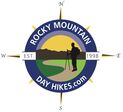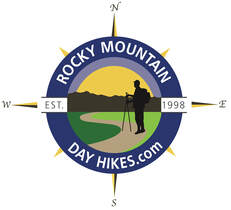|
Notes from the
Trail |
|
“I swear I begin to see little or nothing in audible words, All merges toward the presentation of the unspoken meanings of the earth, Toward him who sings the songs of the body and of the truths of the earth, Toward him who makes dictionaries of words that print cannot touch. “I swear I see what is better than to tell the best, It is always to leave the best untold. When I undertake to tell the best I find I cannot, My tongue is ineffectual on its pivots, My breath will not be obedient to its organs, I become a dumb man.” Walt Whitman, from A Song of the Rolling Earth, Leaves of Grass “Moreover, I find that though I have a few thoughts entangled in the fibers of my mind, I possess no words into which I can shape them. You tell me that I must be patient and reach out and grope in lexicon granaries for the words I want. But if some loquacious angel were to touch my lips with literary fire, bestowing every word of Webster, I would scarce thank him for the gift, because most of the words of the English language are made of mud, for muddy purposes, while those invented to contain spiritual matter are doubtful and unfixed in capacity and form, as wind-ridden mist-rags.” John Muir in a letter to Jeanne C. Carr, a former professor  These are the struggles that two great nature writers, a generation and a continent apart, find themselves in; words that are not adequate to express what they experience in nature. And yet Whitman and Muir do write, splendidly, exquisitely. How can I possibly think that I will find the words in these notes that I jot down about my experience in nature? I do not. And while I’m under no allusion that my words will do anything but possibly get across some notion of what my experience in nature is, I will also write because, what the heck, what I experience in nature is worth the try. I cross over the hump of piled snow left by the snowplow in front of the gate that closes Trail Ridge Road at Many Parks Curve. I clip into my skis and follow the snow path made by a couple of snowshoers. Fresh snow has fallen and avalanches are crashing down all over the state, closing roads that haven’t been shut down from the overpowering snow slides in over a half a century. But here, it’s quiet, not even wind music, and I’m caught up with making my skis function. Because I still ski on skis that need wax for propulsion, and because I forgot to tend to my skis by putting on new wax before I left and so I am going with whatever wax was left on the skis from my last outing, and because this snow can be so difficult to wax for which can cause the skis to either not grip and slip too much or form large clods of snow that hang off the bottom of the skis making them impossible to move, I wonder about how well things will go. But so far, everything seems fine. So I keep moving forward. The new snow is warm snow; good snow for building snow forts and stockpiling a collection of snowballs to be lobed at others. But I am an army of one fighting against an army of none, so the effort is left behind. There are views down into Horseshoe Park, but the encompassing peaks are hidden by low clouds. The somewhat wetter snow clings easily to the trees, and though it is fresh, it seems to hang on the branches like damp laundry.  Of course, the very thing that Whitman and Muir find so impossible to write about is not simply describing the beauty they see in nature, but the spirit or essence of nature, the internal eternal that one experiences in nature. Nature is more than beauty, it is a life unto its own and when we walk into nature, we are entering a world that already exists, we are walking into a life that knows how to take care of itself, and does so with such exquisite beauty and grace that it feels magical. We are left in wonder. There’s an outward bending curve in the road as it follows the contour of the hillside and it would seem the wind must always blow around this bend because, despite the many feet of snowfall that has accumulated all around, there is pavement showing here. And indeed, the wind is now gusting snow into my face and I lower my head letting the top of my hat take the pelting. But not long after, back in the trees and no longer in wind, the snowshoe tracks lead off to the outter edge of the road where they sit and rest on a rock wall. But the snowshoers have had enough and their tracks head back, leaving me to break a new track. Without even the snowshoe tracks to keep me company, the surroundings now seem quieter and I begin to trace a skinny trail as I head farther up the road.  “I swear the earth shall surely be complete to him or her who shall be complete, The earth remains jagged and broken to him or her who remains jagged and broken.” ~ Whitman I fall into a steady rhythm and my eyes focus primarily on the forward placement of the skis, occasionally looking up to track my progress. But my mind wonders into all sorts of everyday thoughts. Fortunately, the extra work of making a new track forces me to take a few more breaks and I am given an opportunity to gander about while catching my breath. My mind also takes an opportunity to rest and soak in the silence and calm. This is what I came to find. The clouds dissipate some and the sunlight falls between the trees and lands gently onto the snow.
0 Comments
Leave a Reply. |
"The wild requires that we learn the terrain, nod to all the plants and animals and birds, ford the streams and cross the ridges, and tell a good story when we get back home." ~ Gary Snyder
Categories
All
“Hiking -I don’t like either the word or the thing. People ought to saunter in the mountains - not hike! Do you know the origin of the word ‘saunter?’ It’s a beautiful word. Away back in the Middle Ages people used to go on pilgrimages to the Holy Land, and when people in the villages through which they passed asked where they were going, they would reply, A la sainte terre,’ ‘To the Holy Land.’ And so they became known as sainte-terre-ers or saunterers. Now these mountains are our Holy Land, and we ought to saunter through them reverently, not ‘hike’ through them.” ~ John Muir |
© Copyright 2025 Barefoot Publications, All Rights Reserved


